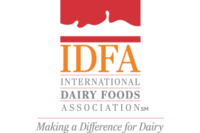How is the dairy industry like Blockbuster, the video rental chain? What can dairy processors learn from Gillette? Will the food industry be up to the task of feeding billions more people in the years to come? What did Confucius have to say about intellectual property rights?
I heard the answers to these questions in January at the Dairy Forum, the annual confab of movers, shakers, politicos and fakers in the dairy industry. Host International Dairy Foods Association, Washington, D.C., gathered deep thinkers to address Big Ideas in La Quinta, Calif. Owners and presidents of dairy processing firms had to have left inspired and action-oriented.
Blockbuster used to own the in-home entertainment business, noted Michael Zacka, the president and CEO of Tetra Pak and erstwhile Huffington Post blogger. It was rendered impotent by new competition, including Netflix, cable’s on-demand movies, streaming video on the internet, bootleg copies and other rivals. Milk today faces its fair share of rivals, including juices, coffees, soft drinks, teas, sports drinks and energy shots. Milk continues to fight off those beverages. Zacka urged processors to innovate by fitting the product to the lifestyle. Babies (newborns and Boomers alike) toddlers, teens and young adults all have nutritional needs that milk products can satisfy. Processors need innovative formulas and delivery systems.
Gillette showed how to create value in razor blades, Zacka said. There is a noticeable difference between a Mach 4 blade and a disposable razor, and men gladly pay the premium. Milk processors need to develop premium beverages that retailers won’t devalue as loss leaders. Don’t diminish the importance of distribution, whether the product is movies or milk. Milk has to be available where the drinkers are. That means expanding beyond the traditional channels. (The weekend after Dairy Forum, I saw a woman leave a Chicago-area home center store with a gallon of Kemp’s milk. Is it legal to drink and drywall?)
Dan Glickman, the former secretary of the Department of Agriculture, now co-chairs Agree (www.foodandagpolicy.org), a group tackling long-term agricultural, food and rural policy issues. Food and agriculture are just as important as healthcare, he said. Consumers want to know what’s in their food, and processors ignore food safety at their peril, he said.
As the United States confronts an obesity epidemic, there are 1 billion people in this world who cannot afford 1,800 calories a day. Astonishing, isn’t it? And heart breaking. IDFA booked a slate of speakers addressing the question: How is the agriculture going to meet the global demand for food?
I heard some sobering facts and analysis. In some nations, an estimated 30% of the food produced never gets from farm to market because of lack of infrastructure. (Again, there’s the importance of distribution.) Speakers presented dense slides of worldwide rainfall maps, aquifers and arable land. There will be growing competition for water, with cities’ needs trumping those of agriculture.
No one sugar-coated the enormity of the task of producing more food with less water on limited land for billions more people. But the challenge can be met. Farmers are more efficient, having “doubled the crop per drop” of water, noted one speaker. Processors are more circumspect about their use of water. I didn’t hear anyone say it outright, but the implication was that genetically modified plants and animals have to be among the solutions. Some people won’t like that.
The husband-and-wife duo Anil Gupta and Haiyan Wang, authors of “Getting China and India Right” (Jossey-Bass) explored and explained the business opportunities in these two nations. China’s GDP could equal America’s by 2025. By 2050, Gupta and Wang expect China’s GDP to be 2.5 times and India’s to be 1.2 times that of the United States. In addressing China’s disregard of intellectual property rights, Wang brought down the house with her observation that the venerated philosopher Confucius said, “Stealing a book is not stealing; it’s learning.”
There was more; a lot more. But you had to be there. Don’t miss Dairy Forum 2013.

